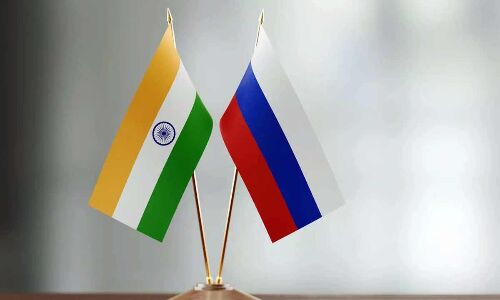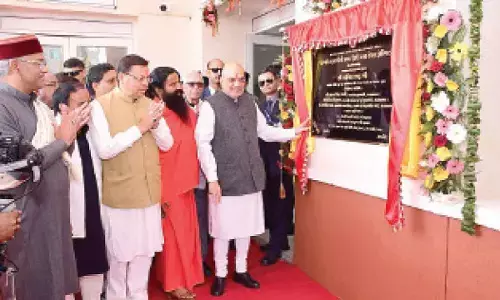How India's time-tested ties with Russia paying off

India’s time tested diplomatic relationship with Russia has paid off. Consider this, which certainly is a case in point. Even as the Russia-Ukraine war continues and amidst various sanctions imposed by various countries on Russia
India's time tested diplomatic relationship with Russia has paid off. Consider this, which certainly is a case in point. Even as the Russia-Ukraine war continues and amidst various sanctions imposed by various countries on Russia, TVEL Fuel Company of Russia, an arm of Rosatom, has supplied the first batches of TVS-2M nuclear fuel to India for the two functioning units of Kudankulam NPP, powered by VVER-1000 reactors. TVEL Fuel Company of Rosatom is the fuel division of the State Corporation Rosatom. After the nearest refuelling, the power unit 1 will now start operations in 18-months fuel cycle.
The current geopolitical situations notwithstanding, TVEL has fulfilled the agreement with Nuclear Power Corporation of India Limited (NPCIL) on implementation of a comprehensive engineering project, including introduction of TVS-2M nuclear fuel and elongation of the fuel cycle from 12 to 18 months for both VVER-1000 reactors. Kudankulam NPP in Tamil Nadu is in the process of construction of six power units with VVER-1000 reactors with an installed capacity of 6000 MW. The first stage, consisting of power unit No. 1 and No. 2, was commissioned in 2013 and 2017, respectively. Power units No. 3, 4 and No. 5, 6 are the second and third stages of the Kudankulam NPP. Currently, power units 3, 4, 5, 6 are under construction.
Mind you that compared to the UTVS fuel model, which was supplied to Kudankulam NPP previously, TVS-2M fuel assemblies have a number of advantages making them more reliable and cost-efficient. First, it is the rigidity of a bundle: because of the welded frame, the fuel assemblies in the reactor core retain their geometry, the spacer grids protect fuel rod cladding from fretting wear (preventing from depressurization), and the additional spacer grid makes fuel assemblies more vibration-resistant. Secondly, the new fuel has increased uranium capacity - one TVS-2M assembly contains 7.6 per cent more fuel material as compared to UTVS. Besides, the special feature of the Kudankulam fuel in particular is the new generation anti-debris filter ADF-2, protecting bundles from debris damage, which may be caused by small-size intrus objects in the reactor core.
Operation in longer fuel cycles also enhances economic efficiency of a plant, as reactors have to undergo stoppage and refueling less frequently, so the power units produce more electricity. Besides, the power plant needs to purchase less fresh fuel, and as the result, has to deal with smaller amounts of spent nuclear fuel, which also requires expenses.
Significantly, TVS-2M fuel is efficiently operated in 18-monthes fuel cycle at Rostov NPP and Balakovo NPP in Russia, as well as Tianwan NPP in China. Fuel bundles with ADF-2 anti-debris filter have also showed good results at Rostov NPP. Besides, all VVER-1000 reactors in Russia operate at higher capacity, 104 per cent of the nominal, and this experience is also a matter of interest of nuclear power plants operators abroad.




